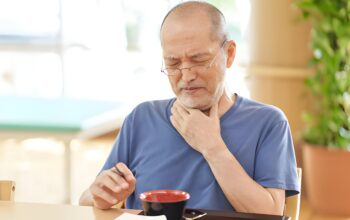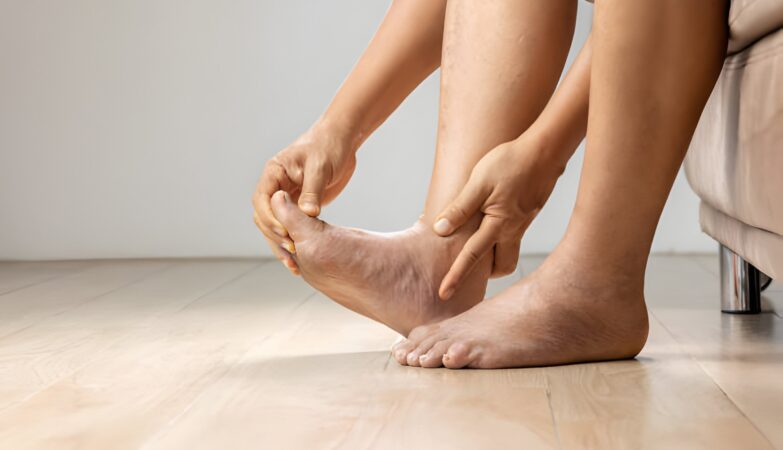The initial episode of a panic attack occurred when I was 21, while I was making my way from the cafeteria to my university housing.
The trigger was unclear: I couldn’t figure out why my face flushed, why I was gasping for air, or why a sudden wave of overwhelming dread washed over me. Tears started flowing as I hugged myself and rushed back to my newly-assigned quad, where I was living with three other undergraduates.
With no private space to retreat to — no way to escape my humiliation caused by this inexplicable emotional outburst — I settled into my bed and stared at the wall.
What was going on with me? What triggered this? And how could I get it to end?
It was only after a prolonged period of counseling, learning, and confronting the societal prejudices against mental health issues that I finally understood the phenomena.
Eventually, I came to realize that the abrupt surges of terror and unease that I had undergone several times by then were, in fact, panic attacks.
Misconceptions abound regarding the appearance and sensation of panic attacks. Demystifying these incidents involves looking closely at what they actually are, as opposed to the common myths that surround them.
Myths about panic attack
Every Panic Attack Exhibits the Same Indicators
Truth: The experience of a panic attack varies greatly from person to person, shaped largely by individual circumstances.
Typical signs might include:
- Struggling to breathe
- Heart pounding fast
- Sensations of losing grip or safety
- Pain in the chest area
- Upset stomach
- Feeling light-headed
A range of different symptoms exists, and it’s entirely possible that you may only go through some, rather than all of these indicators.
In my case, my panic episodes often commence with a surge of warmth and a reddened complexion, followed by severe apprehension, an escalating heartbeat, and tearfulness that appears without an obvious reason.
I spent a considerable amount of time questioning whether what I was going through could be labeled as a panic attack. I grappled with validating my own experiences, thinking maybe I was just being overly emotional.
Panic Attacks Are Just Dramatic Overreactions
Truth: Contrary to societal prejudices, panic attacks are not something within an individual’s control. While the exact origins of panic attacks are not clearly understood, they are often triggered by stress, mental health conditions, or unidentified changes in one’s surroundings.
Far from seeking attention, the majority of people undergoing panic attacks often bear a deep sense of self-stigma and humiliation, especially when these attacks happen in the presence of others or in public spaces.
In my earlier experiences, if I sensed a panic attack approaching, I would hastily exit the situation or head home immediately to sidestep public embarrassment.
Comments like “Why are you even bothered?” or “Just relax, will you?” were typically counterproductive, adding to my distress and making it even more challenging to regain composure.
If someone you know is prone to panic attacks, it’s advisable to discuss, during a calm moment, what they would like you or others to do should they experience an episode.
Many individuals have a predetermined plan for panic or crisis situations, which provides guidelines on what measures help them regain their emotional equilibrium.
Myth: Those Undergoing Panic Attacks Require Immediate Medical Help
Reality: Watching someone experience a panic attack can be unsettling. However, it’s crucial to understand that they are generally not in life-threatening danger. Your most helpful action is to stay calm.
While differentiating between a heart attack and a panic attack is crucial, many who frequently experience panic attacks can usually distinguish between the two.
If you’re near someone having a panic attack and have asked whether they need assistance, your next step should be to respect their response. Trust them if they say they can manage on their own.
Many have developed effective strategies and routines to counteract panic attacks and usually have a go-to plan when such episodes strike.
In these situations, I usually know exactly what steps I need to take to help myself recover, often just requiring some time to implement my calming techniques without the fear of judgment.
Myth: Panic Attacks Only Happen to Those with a Mental Health Diagnosis
Reality: Panic attacks can happen to anyone, irrespective of whether they have a mental health diagnosis.
However, some are more prone to recurring panic attacks, such as those with a family history of the condition or those who have a past involving child abuse or trauma. Additional risk is present for individuals diagnosed with:
- Panic disorder
- Generalized Anxiety Disorder (GAD)
- Post-Traumatic Stress Disorder (PTSD)
People not falling into these categories are still vulnerable, particularly if exposed to traumatic events, high-stress work or academic environments, or if they are not taking adequate care of their basic needs like sleep, food, or hydration.
Therefore, it’s beneficial for everyone to have a baseline understanding of what a panic attack entails and how to regain composure.
Knowledge about panic attacks, both for personal coping and supporting others, goes a long way in dispelling the stigmas associated with mental illness. It helps mitigate one of the most challenging aspects of dealing with panic attacks: explaining the event to those around you.
Often, the stigma surrounding mental illness can compound the difficulty in situations where someone is already struggling.
Consequently, distinguishing between myths and facts can make a significant difference, both for those who suffer from panic attacks and those who wish to offer support.
I’ve been consistently amazed by how well my friends, educated about anxiety and panic attacks, have responded during my difficult times.
Their support has been invaluable. Whether they simply sit with me in silence while I work through my emotions or actively help me articulate my needs when I’m at a loss for words, I’m immensely thankful for such supportive friends and allies in my mental health journey.







